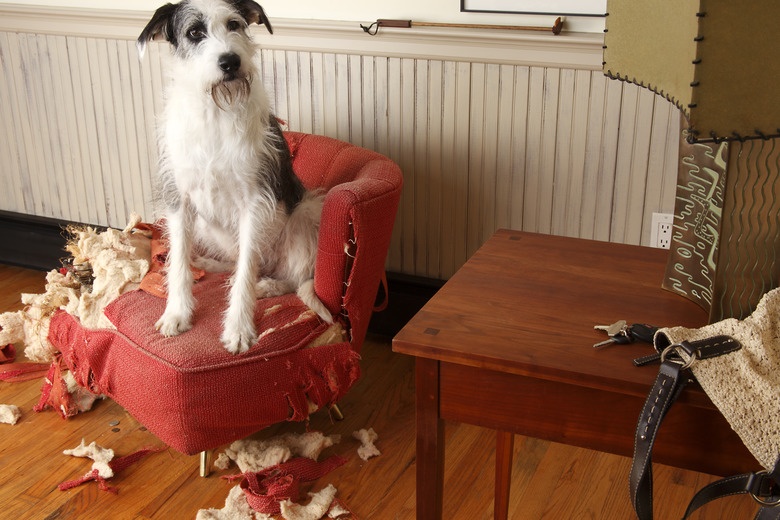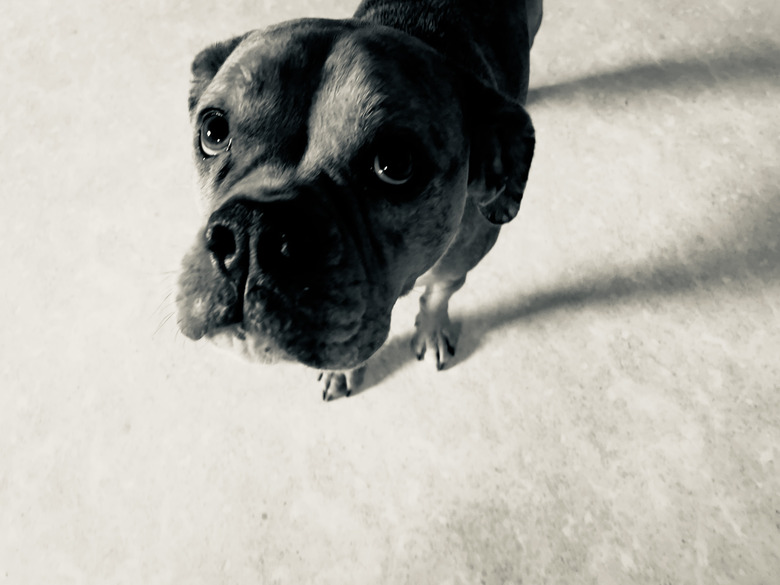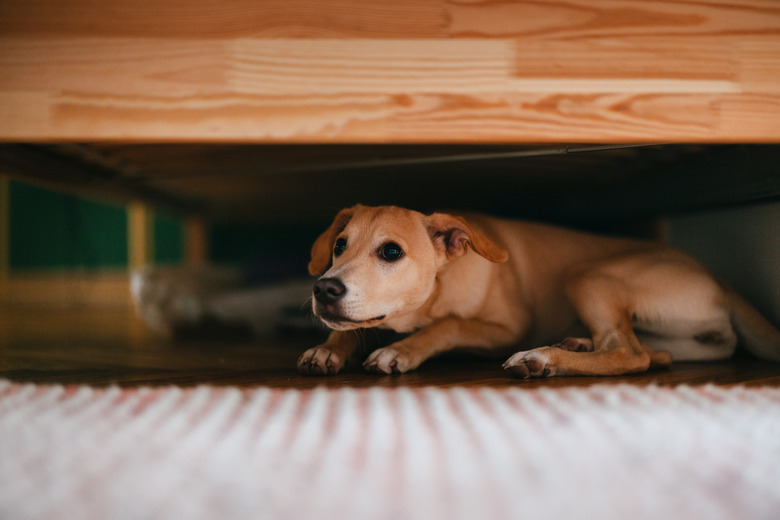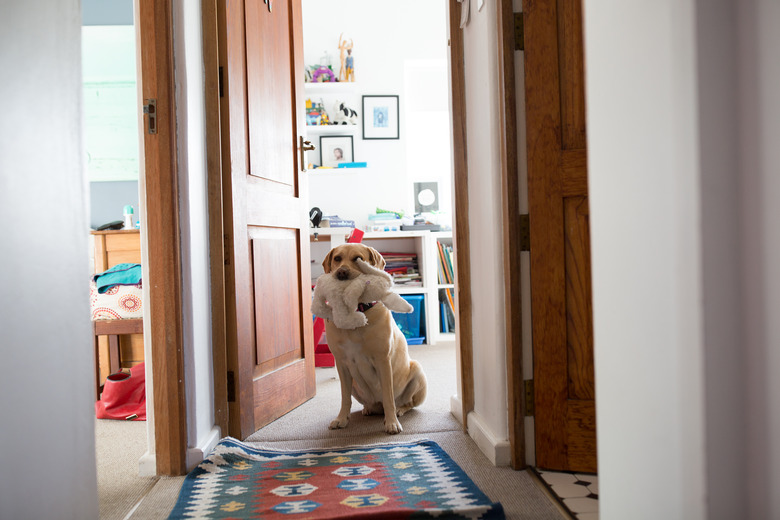Can Dogs Feel Guilt?
The idea of dogs feeling guilty for naughty things they have done is everywhere. You'll see on social media people posting the naughty things their dogs have done and saying their dog clearly understands how wrong they were because of how the dog is acting.
While dog-shaming posts and pictures can be funny, they are also misleading. Dogs don't experience guilt or understand misdeeds the way we do. Unfortunately, the reality is your dog has no idea what they did was wrong. The guilty look that you think you see is our dog responding to you or feeling stressed about your reactions!
Do dogs feel guilt?
Do dogs feel guilt?
The idea of the guilty dog is so pervasive that it has even been scientifically studied. dog cognition and animal behaviorist researcher Alexandra Horowitz at Barnard College studied whether there is any truth behind the guilty look. In the study, 14 dogs were filmed with various opportunities to "disobey" by eating a treat dog owners told them not to eat. The study found that what we think of as a guilty look is a response to the guardian's cues, not an understanding of having done something wrong.
Unpacking the "guilty dog" look
Unpacking the "guilty dog" look
What does your dog do if they do something "naughty" like cheering up your favorite shoes or going to the bathroom in the house? Those physical behaviors that many pet parents associate with their dog feeling guilty don't really mean what you think.
Often, dog guardians will anthropomorphize their dogs meaning attributing human emotions or traits to nonhuman animals. In reality what dog guardians are usually seeing when dogs duck away, hide, or look sheepish or embarrassed are appeasement gestures or signs of stress. Common behaviors that are seen as a dog looking "sorry" are looking away, cowering, hiding, or giving big whale eyes are actually signs of stress. Your dog is feeling worried and concerned about your behavior and demeanor at that moment. Or your dog's emotions are being negatively impacted by how they might have been treated in the past.
Understanding signs of fear
Understanding signs of fear
Dogs aren't trying to be bad, and when they do something you don't like they usually don't realize that they did something wrong. The kinds of things that dogs get in trouble for like chewing, barking, and going potty inside are very natural behaviors. Learning how to read your dog's body language will help you to better understand your dog's feelings and better understand the cues misunderstood as acting guilty. Dogs express signs of stress in different ways. Dogs might be panting, pacing, tucking their tail, yawning or other displacement behaviors like turning away, cowering, or seeming like they are trying to avoid the situation. All these behaviors including not making eye contact, and cowering lead many dog guardians to misinterpret these behaviors as meaning their dog feels guilty for something they did. In reality, it's a sign your dog is fearful, stressed, or uncomfortable.
Punishment is ineffective and harmful
Punishment is ineffective and harmful
Punishing your dog's behavior isn't an effective way to improve or change your dog's behavior. Using positive reinforcement dog training approaches are the most effective way to teach your dog new behaviors. Using punishment and aversives while training are harmful to your dog, and can cause behavioral fallout in the future.
"Looking guilty" often comes into play when dogs do something their guardians don't like and are punished for it later. What is seen as a "guilty look" is actually your dog displaying avoidant or fearful behavior of how you will respond. Your dog is likely frightened because you are verbally scolding or physically punishing them, or this kind of punitive reaction has happened before and your dog is afraid that could happen when you interact with them.
Punishment is ineffective with dogs partly because dogs "live in the moment." If you punish your dog for something they did earlier in the day, like chewing up your shoes, your dog isn't going to make the association that being scolded now is because of that thing that happened earlier. It's more effective to use reward-based training approaches to teach your dog new skills and set them up for success by putting away items you don't want them to chew.
The bottom line
The bottom line
At the end of the day, dogs can't feel guilty. The behaviors that people misinterpret as a dog seeming guilty for what they have done usually mean the dog is stressed. When a dog does something "wrong," it usually means they were put into a situation they didn't have enough training to manage successfully.
Instead of punishing your dog, in the future, try to set them up for success by putting away items they want to chew, taking them out to potty more, and using positive reinforcement techniques to teach your dog what you do want them to do.




